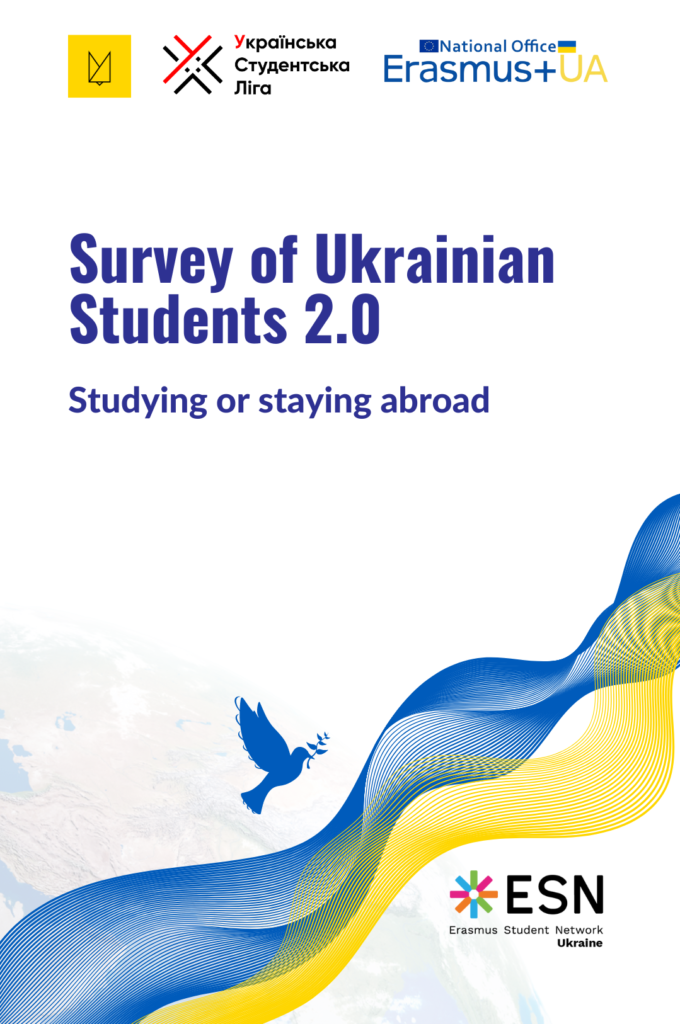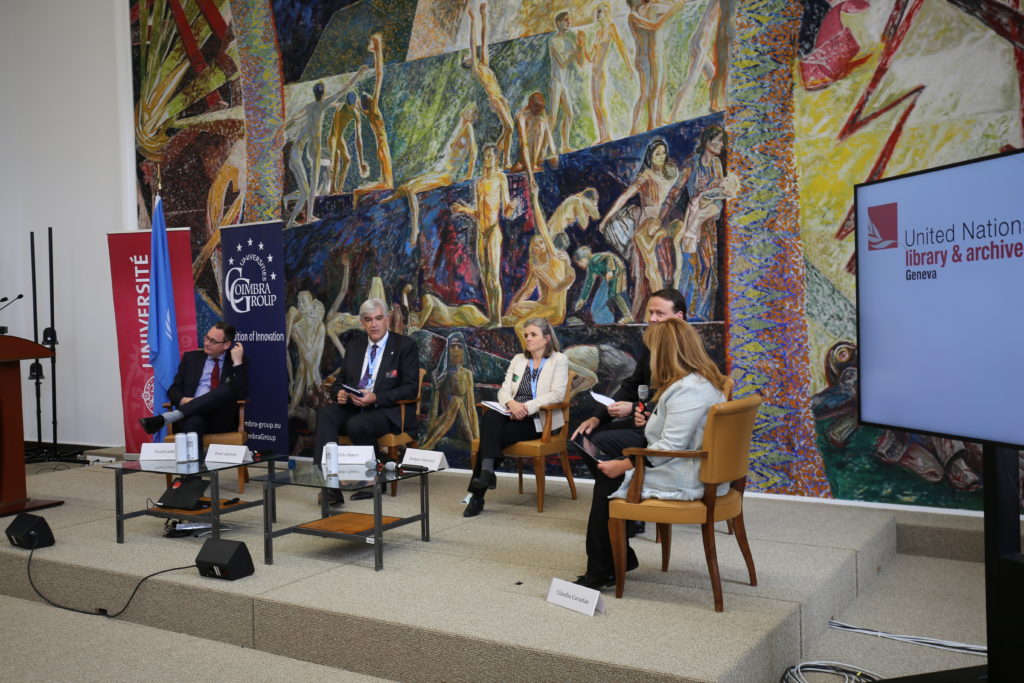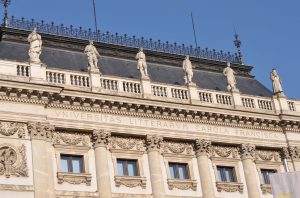The outputs of Digital Education Hub’s work on education in times of crises
30 March 2023
In February 2023, the second Working Group (Squad 2) of the Digital Education Hub finalized its output. The Squad’s theme, “Digital education in times of crises: Emergency education enablers,” was a response to multiple ongoing crises affecting the educational sector, starting from the war in Ukraine to the Covid pandemic and climate changes. Squad members representing universities, schools and non-governmental organizations in the education sector worked together for four months, including the Community Workshop in Brussels in October 2022, analyzing the impacts of different crises, creating case studies portfolios and preparing action points proposals. Coimbra Group Policy Officer participated in works as a Squad member, sharing the experiences and conclusions of CG Universities concerning the Covid-19 crisis’s influence on the higher education sector. The takeaways from the CG reports “Universities’ Response to the Covid-19 Crisis: What have we learnt so far? Key messages and recommendations from Coimbra Group Universities” and “Practices at Coimbra Group Universities in response to the COVID-19: A Collective Reflection on the Present and Future of Higher Education in Europe” were included in the final output of the Squad published here (once Emmanuelle receives information from Leon Koch, Community Manager European Digital Education Hub, on publication of the output please add the link here). We encourage all interested parties to review the output.
Digital Education Hub was created as part of the European Education Area portal. During the preparation of the Digital Education Action Plan (2021-2027), extensive stakeholder consultations highlighted the need for reinforced cooperation and dialogue between stakeholders in the area of digital education. Digital Education Hub brings together the community working on digital education and provides a dedicated space for its information-sharing and cooperation needs, and ensures the visibility of the outputs of its community of practice. More information about the project is available here.

Webinar on inclusive curriculum projects
07 October 2022
The Equality and Diversity Working Group organizes a webinar on approaches to, and experiences of, inclusive curriculum projects. The aims of the webinar are to act as a starting point for exploration and discussion of implementing inclusive curriculum projects in universities.
Short outline: Trinity College Dublin will introduce their project and share their experiences of taking a holistic, whole-of-College approach to promoting inclusivity in the teaching and learning experience. Thereafter, Utrecht University will introduce their approach in which a course- and curriculum scan were developed as well as a toolbox for an Inclusive Curriculum. Colleagues of the Julius-Maximilians-Universität of Würzburg will reflect on these presentations and give the participants questions to reflect upon in a short break-out session. In the wrap-up the most important challenges, next steps and tips will be identified.
The webinar will be on Wednesday, 12 October 2022, 11 am-12:30 pm CET.
Please join our webinar by registering here before 10 October, 5.00 pm CET.
How does Coimbra Group promote joint programmes at Doctoral level?
29 June 2022
On 15 June 2022, Adriana Zait represented the Coimbra Group at the event “International Collaboration and Joint Programmes at Doctoral Level in European University Alliances and Networks” organised by YERUN (Young European Research Universities Network).
The vice-chair of the Doctoral Studies (DS) Working Group shared the CG views on how to promote joint programmes and collaborations at Doctoral level.
When asked about the development of joint programmes, Adriana responded that it is important to “think in efficacy and efficiency terms” and assess what type of results we want to achieve and at what level. “We can start with changing things at the level of students or supervisors and only after that start changing groups and institutions and move forward with the joint programmes”. To this end, “we need to create institutional and societal awareness and trust to secure sustainable buy-in from all stakeholders”, she said.
Adriana also shared the most recent developments of the DS WG. “We are now assessing the bottlenecks that universities face when it comes to cooperation and trying to find how we can change behaviours towards this new type of doctoral research. We want to build awareness on both advantages and disadvantages and then find the way to engage people in long term collaborations”.
Adriana Zait concluded her speech with a call to all the university networks which share the same goals and objectives to come together and collaborate with each other by sharing their results. “This way we will be able to move forward more quickly”, she mentioned.
More information and the recordings of the event can be found in this link: https://yerun.eu/2022/06/yerun-link-edu-res-2nd-multiplier-event-was-a-success/
31 March 2022
Like the whole of society, Universities are still in the process of adapting to the consequences of the Covid-19 pandemic when they now witness the military invasion of Ukraine, another event that will have long-lasting and global consequences. The University sector has reacted swiftly to the situation in Ukraine, responding individually and through networks and associations with numerous statements, as well as putting in place concrete measures to respond to the immediate emergencies created by the war.
The invasion of Ukraine by Russia is an aggressive act that presents a significant challenge to the values and ideals of the globally interconnected academic world. International university cooperation, developed on the basis of freedom of expression and collaboration, and has always aimed at building bridges that provide opportunities for partnership and connections among researchers to grow. Such understanding lets us strongly reaffirm the Coimbra Group’s commitment to creating strong academic and cultural ties in order to promote, for the benefit of its members, internationalisation, academic collaboration, excellence in learning and research, and service to society.
The continuity of education and research is of utmost importance to our community as the ability of the Universities in Ukraine to carry out their normal academic activities has been severely disrupted. The Coimbra Group’s first call was for peace and democracy, affirming our longstanding commitment to fundamental human rights. This was followed by a second statement urging the EU institutions and Member States to include in their emergency responses affected non-European students and academics. Furthermore, the CG united with other European organizations to work on specific proposals for adapting Erasmus+ to support Ukrainian students and staff. The resulting joint paper by the CG, the Erasmus Student Network (ESN), European Students’ Union (ESU) and European University Foundation (EUF), calls for maximum flexibility in the programme’s funding. It also points to the need for an EU comprehensive support framework for Ukrainian students and faculty who have fled the conflict as well as international students who were completing their studies in Ukraine.
We welcome the prompt reaction of the European institutions, such as the announcement by the European Commission that it is working with Erasmus+ National agencies to address many of the points raised in our joint advocacy with ESN, ESU and EUF. The rapid launch of the ‘European Research Area for Ukraine’ (ERA4Ukraine) is also an essential step towards securing the continuity of scientific progress and cooperation in the international community.
CG members who neighbour Ukraine have by far been the most impacted in their day-to-day activities, engaging in unprecedented efforts to assist refugees since 24 February. At the same time, CG Universities across Europe have been mindful of the specific needs of Ukrainian and Russian nationals in their respective academic communities. With the rapid development of the situation, University access programmes, scholarships and fellowships are now being set up by CG members. Drawing upon the strength of the network, the CG is keeping track of these opportunities and resources and doing our upmost to increase their visibility.
The purpose of higher education institutions has often been perceived as being at a crossroads, evolving under the changing philosophical ideals, policies, and trends. In the light of current tragic events, a deeper reflection on higher education’s fundamental values is needed more than ever. It seems not only timely to reflect on these values and their role in moments of uncertainty and turbulence, but also, and above all, it links to the fundaments of European university traditions.
We very much look forward to meeting with all Coimbra Group members for an essential debate on this issue at the upcoming 2022 CG Annual Conference, which will be hosted by the University of Padua from 7-10 June 2022. We take this opportunity to invite all ofyou to join us in the discussion on values, engagement and responsibility in university cooperation in Europe during the public conference placed this year under the theme “«Universa Universis»: Academic Freedom in a Transforming World.”
2022 Laureate of the Arenberg-Coimbra Group Prize for Erasmus Students
28 March 2022
lkloiuoiupouiiou
24 January 2022
poiupoiupoiupoiu
jhgkjhgkjhgkjhg
mkjmlkjmlkjmlkjmlkjmlkjrem lkrtjmfdlkjdf mlkj

dhfehdhe
05 February 2021
erherhw egwascfasfafcasc zvadsvswegarstn ddbrgfgvsdv qwfrqwfqf
ASDFASFVAS repoASFKJBABSBAIrt
10 April 2020
Innovative Student-Centered Approach For Teaching
Technology Enhanced Learning
HR practitioners share with students their professional experiences
The students enrolled in the master program Personnel Evaluation, Training and Psychological Counseling are invited, in their first year of study, to take part at several meetings with practitioners that work in the fields of organizational psychology and human resources management and development. These specialists share with students’ stories about their professional experiences and their career paths. Students are encouraged to ask questions regarding the professional aspects that are most interesting and important for them. Since the meetings are not very formal, students are very active in discussing various professional and career topics with the invited practitioners. At the end of these meetings, students understand better the opportunities and the difficulties within the domain they have chosen, and are more motivated and optimist.
View More
Teaching European Integration: The Case for Role-playing Games in Economic Curriculum
Our attempt was to improve the way how the courses on European integration look like. To allow students to understand the importance of negotiations in the EU decision making we let them negotiate some of the current problems in the EU. In 2016/2017, students representing various countries and the EU administration negotiated possible resolution of the Italian banking crisis, in 2017/2018 the main topic is the problem of the Irish border in the Brexit negotiations.
View More
A definitional ceremony approach to formative evaluation in higher education.
The narrative practice applied in education was the Definitional Ceremony consisting in a group (community) storytelling, in structuring story-teller and witness roles. The core of the narrative facilitation consists of the engagement of the storytelling/auditory “communities” in the development of a richer story stimulating members’ identity reflections of the participating groups (communities). Thus, this practice entails the concept of “narrative identity”, where identity formation is a relational product, a public and social result of identification and authentication of personal preferences and desired expressions of experience, in this case, of learning experiences and conclusions based on them. The practice consists of a final course “event” organized as a celebration of learning and transformation in a genuine formative evaluation of master courses using narrative approaches.
View More
English for Educational Sciences – Online Course
The main aim of the online course is to teach reading skills and to help (French-speaking) students analyze the structure and content of scientific texts written in English. The course is based on different topics related to educational sciences. Analysis and commentary of the texts are done through a series of podcasts, followed by exercises with (sometimes individual) feedback. The platform used for the online course is MOODLE (https://moodleucl.uclouvain.be – official e-learning platform of our university). Vocabulary and grammar are studied in context and reinforced by systematic exercises with detailed feedback.
View More
Innovation in the teaching of physics and chemistry: learning by doing
This work shows briefly the planning followed in the subjects “Didactic”, “Innovation” and “Evaluation” in Physics and Chemistry owned to the Official Master´s Degree in Teaching in Secondary Schools, Vocational Training and Language Centers from the University of Salamanca. The main objective of the activities we program is for students to acquire the competences of the Master through active learning, turning the classroom into a laboratory where students are sometimes objects and others are the authors of the experience. The sessions are based in series of experiments in Physics and Chemistry. A methodology is followed through the culture of thought, fostering collaborative work, metacognition activities, mental maps, etc. It reflects the need to motivate the learning process, as well as to stimulate the creativity in future students. The sessions in the laboratory and the field trips cannot be absent from the activities. As a tool to measure physical magnitudes as well as to carry out and / or answer questionnaires, different Smartphone applications are used. The degree of acquisition of competences is evaluated by asking students to publish the results obtained in different virtual platforms such as on a YouTube channel: (https://www.youtube.com/channel/UCwqaDfLBebKgdyTREtPl4mQ) in a personal blog of each student, or simply in an individual notebook. This way of organizing the subjects, contributes to bring to the classroom the passion that we feel for Physics and Chemistry as teachers.
View More
Minecraft for project management
We propose to the first-year students to use the videogame Minecraft to learn the project management. Since we want to ensure that there are no mandatory technological knowledge, the use of a videogame allows us to let the students acquire project management competences without a bias from their high school background. During the first semester, all the students have one month to achieve a project on the virtual environment. During this month the only specifications they have is to build something with automatic systems in small groups (from 5 to 6 students). They spend at least 3 hours per week on this project and may continue during their free time in the whole month. 2 hours per week are in the presence of a teacher to evaluate and exchange on their planning, communication and teamwork. At the end of the month each will present his work to the other ones. Since the goal of the module is to ensure that the students progress on the project management and not on the videogame, the role of the teacher in the module is very important. He must evaluate the whole project planning, group communication, teamwork and student’s leadership for each group. Then on the second semester, a third of the students continue with Minecraft while the rest of them work on a technical project.
View More
Internationalization And Intercultural Aspects Of The Curriculum
Continuous Professional Development
Making the most of cross-cultural group work
As well as educator managed group allocations, the careful selection of seminar case studies can contribute to better more meaningful cross-cultural exchanges in Business School seminars, so that all members of the group have an opportunity to foreground their knowledge and no one category of student is advantaged because they always understand the context of the cases.
View More
Escritiva – Creative writing in Portuguese classes
Through different student centered activities (reading, translation, literary creation, participation in radio programs, review, meeting and discussion with writers, literary routes in Portugal, participation in different creative writing contests* etc.) we aimed to expand and diversify the intercultural contact areas of students of Portuguese as a foreign or second language, both inside and outside the classroom, collaborating in the promotion and nourishment of the micronarrative blog 77 palavras (77 words). This blog was coordinated by the writer and expert on creative writing, Margarida Fonseca Santos.
View More
Entrepreneurs Workshops.
The aim is to carry out eminently practical workshops to promote the entrepreneurial spirit in the students of the University and they learn as practically as possible how to create a business.
View More
Celebrating the XX Anniversary of the signing of the Bologna Declaration
29 July 2019
The organising committee has forwarded the information below as follow-up to the XX Anniversary of the Bologna Declaration and hope you will find it thoughtful and useful.
The full papers of the Keynote Speakers as well as the reports from the Plenary Session:
http://bolognaprocess2019.it/speaker-presentations/
The official photos of the event:
http://bolognaprocess2019.it/event-photos/
Please keep monitoring the web site for any missing presentations regarding the anniversary, they will be uploaded in the coming weeks.
STEM WG meeting & workshop “STEM communication and promotion”
15 October 2018
Scholarship Programme for European Neighbourhood
23 January 2018




